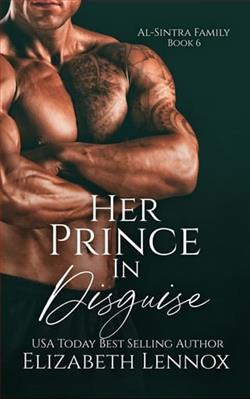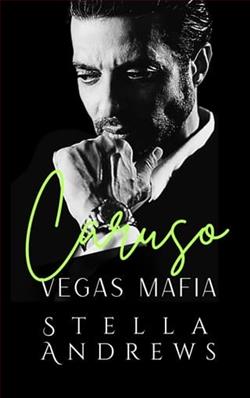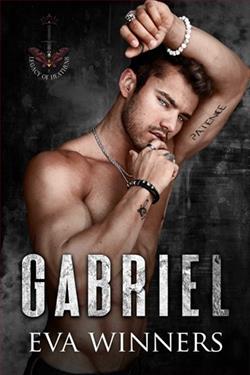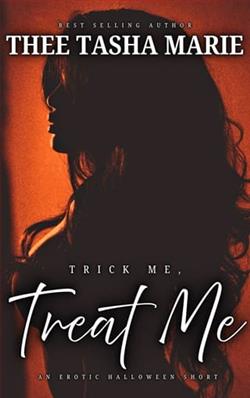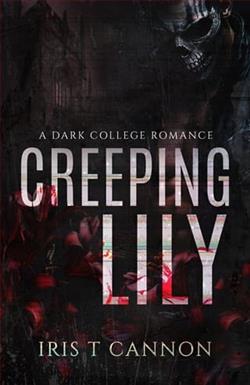Page 46 of The Heartbreak Hotel
“Goldie lives in New York,” I tell Henry, just to say something. He agreed to come to the park without hesitating, but now that we’re halfway there and still haven’t spoken, I’m worried that inviting him was the wrong choice. We ran into Bill and Martina walking Custard on our way out the door, and seeing Henry with him again reminded me of the dynamic from back in August: Henry, silent with me. Henry, open and lit up and loosened with everyone else. “I only get to see Quinn a couple times a year.”
“He loves you,” Henry says. He’d watched Quinn bound down the stairs and into my arms when Goldie left, completely unfazed by her going. I’m not too big to admit that it gave me a silly sort of satisfaction after what she’d said to me.
“It’s super mutual,” I say, and a smile tugs at the edge of his mouth. “He’s my favorite person.”
“Is she doing it alone?” Henry asks. “Or does he have another parent?”
“Just Goldie.” Our footsteps fall in tandem, our shadows stretching long across the sidewalk. “She had him with a donor. She, um—” I catch myself before sayingdoesn’t trust men. “She’s always known exactly what she wants, and never hesitated to get it.”
Henry nods, watching Quinn hop two-footed over a crack in the pavement. “Looks like she’s doing a good job.”
“I mean, yeah. She’s a perfect mom.” She came into motherhood like she was made for it: stern but warm, fun but boundaried. Something she’d never seen modeled, she picked up straightaway. There’s never been a problem Quinn has presented to her that she hasn’t been able to solve. Goldie can be callous, but I’d trust her with life—mine, and anyone else’s. “Goldie’s good at everything.”
“Hm.”
I look over at Henry. “What?”
He shrugs, glancing at me. The way the autumn light catches his eyes is criminal. “She’s good ateverything? That can’t be true.”
“Well, you just met her,” I say on a laugh. “Give it some time, and you’ll see.”
“Can she cook?”
“Better than anyone I know.”
“Run?”
“She does the New York City Half every year.”
“Draw?”
I tilt my head back and forth. “Decently.”
“Give her sister the credit she deserves?”
I catch his eyes, narrowing mine. “Ha-ha.”
Henry shrugs again. “I mean it. Giving people we care about space to be themselves, instead of the people we want them to be, is a skill, too.”
“That’s true,” I say slowly.
“And you’re good at it.” The breeze blows hair over his forehead, and he reaches up one hand to push it back. The threads of silver at his temples glint in the lowering sunlight. “I didn’t mean to listen, the other day, when I finished fixing that door. But I heard what you said to Kim.”
“About being sad?”
“About grieving how you need to.” Henry digs his hands further into his pockets, shoulders coming up to his ears. I picture him in the doorframe that day: his fingers working the rag, his low voice as he stepped around me toward the garden door. “You told her that the way she is is okay. I think she needed to hear it.”
It’s so validating that my initial urge is to push back on it, thrust away the discomfort of being seen so clearly. But instead, I make myself say, “Thank you, Henry.”
He turns to look at me, holds my eyes.I understand.“You’re welcome.”
“Lou-Lou,look!” Quinn points ahead of us, where Elk Run Park’s brand-new jungle gym rises from the mulch in all its polycarbonate glory. It’s surrounded by pine trees and the ring of distant mountains.
“I told you,” I say. Henry and I stop next to him, and Quinn absently clenches a hand into the bottom hem of my jacket. “What should we do first?”
Quinn takes it all in, his lips parted. There are a few other families at the park—twins in matching sweaters on the swings, a group of teenagers clustered around the slide. October wind blows, crisp and cold, but Quinn is unfazed.
“Monkey bars?” He looks up at me with a combination of glee and mischief in his eyes.








